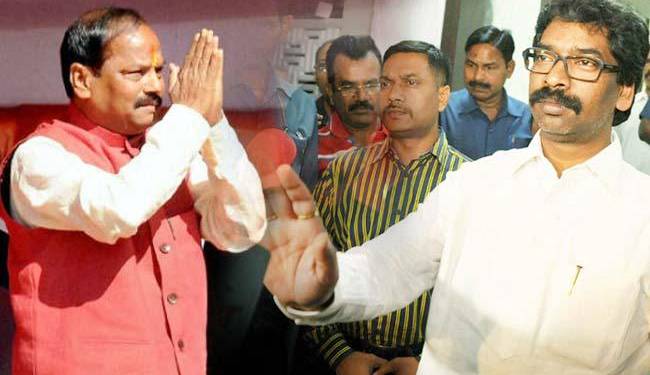Jharkhand, the state on the South of Bihar has fought for decades to get a separate political identity. The region has been shadowed under the Bihari identity for decades. The corrupt politicians from Bihar were always adamant to give the region its due share in public finances, despite the fact that the majority of state revenue came from industrialized areas of Jharkhand.
This led to the region’s demand for a separate political entity in the early 1970s. The demand was fuelled further in 1980s and 1990s when the corrupt regime of Lalu Yadav ruled the state of Bihar. The RJD government’s step-motherly treatment to the region in allocation of public expenditure resulted in several violent protests in the region. The protests got political support of National Parties like BJP, many regional parties like JMM, JVM also emerged on the political map of the state with sole demand for a separate state for the ‘sons of the soil’.
The separate state was created by the end of millennia, in 2000. But, the creation of the separate state plagued its politics in the binary of tribal and non-tribal. The politics of the state has been dominated by tribal vs non-tribal binary. The Congress party, which is fighting this election in alliance with JMM, which considers itself party of tribal, is happy with this politics of binaries.
In this assembly election, JMM is contesting in 43 while the Congress and the RJD are fighting in 31, and all parties have resorted to ‘quota politics’ to appease the voters. JMM has promised 28 per cent reservation to Scheduled Tribes, 27 per cent to Other Backward Classes and 12 per cent to Scheduled Castes, as per the party manifesto.
To polarize the tribal votes, JMM leader like Hemant Soren has resorted to same old tribal plank. The BJP government at centre and Ragubar Das government in the state has cheated the tribal population, said JMM leader Hemant Soren.
The BJP led NDA government, which came to power in the late 1990s at centre, decided to separate the region of Jharkhand in 2000 and a new state was born in union of India. But since then, a problem-plagued the state- the identity of a tribal state. Demographically, only 26.3 per cent of the populations of the state in tribal but, over a third (29 of 81) of seats are reserved for tribal people.
The tribal vs non-tribal politics has ruined the development of the state in the last decade. The state has been governed by 6 chief ministers since 2000s and five of them are tribal. For the first time in 2014, BJP came to power in the state with full majority, winning 43 out of 81 seats, and the state got its first non-tribal chief minister- Raghubar Das.
The image of Jharkhand has been dominated by tribal identity for decades, but the fact remains that ‘It is not a tribal state’, because a state where only one-fourth of the population is tribal could not be called a tribal state.
The two major opposition parties of the state- Jharkhand Mukti Morcha and Jharkhand Vikas Morcha (Prajatantrik) have encouraged ‘divisive domicile’ politics in the state. They have promised to reserve 60 per cent of all government jobs for tribal people if elected to power, despite the fact that tribal constitute only 26.3 per cent population of the state. Some other chauvinistic claims like Jharkhand is homeland for tribals, therefore all the people of other ethnicity should go back to their native places has been made by these parties.
The last five years of first non-tribal leader of the state- Raghubar Das has gone very well with the tribal as well as non-tribal population. The development-oriented policies of Das has benefitted the poor people of the state irrespective of their ethnic identities. The opposition parties like JMM, JVM, and Congress are already concerned over defecation of their leaders to BJP; therefore, BJP is expected to improve its tally in the 2019 assembly election.
BJP has performed excellently in Jharkhand since the inception of the state. The party won 8, 12, 12 seats in 2009, 2014, and 2019 general elections respectively. The party also performed well in legislative elections and won 30, 20, 43 seats in 2005, 2009, and 2014 assembly elections respectively, and expected to come with full majority in 2019 assembly elections too.




























